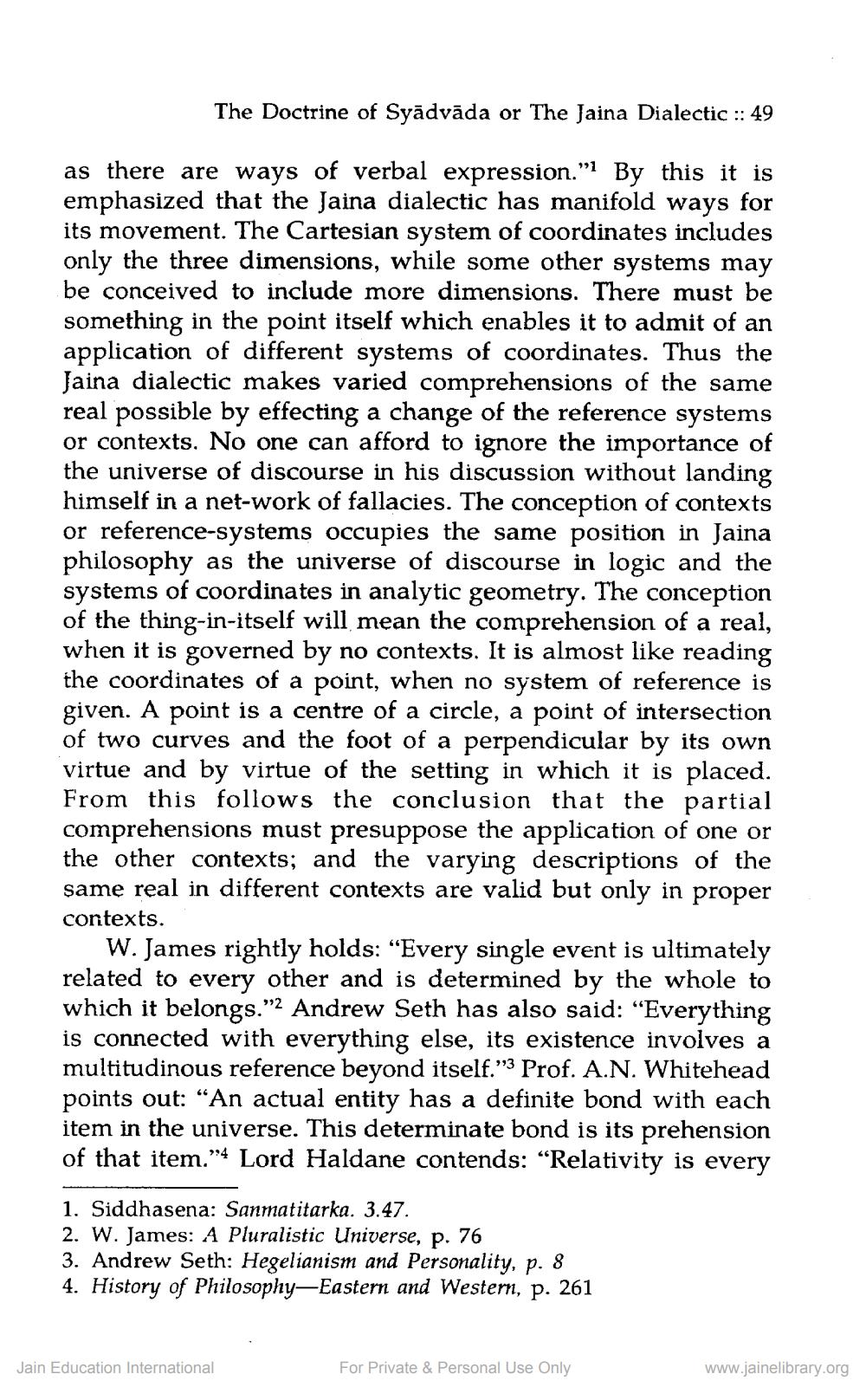________________
The Doctrine of Syādvāda or The Jaina Dialectic :: 49
as there are ways of verbal expression." By this it is emphasized that the Jaina dialectic has manifold ways for its movement. The Cartesian system of coordinates includes only the three dimensions, while some other systems may be conceived to include more dimensions. There must be something in the point itself which enables it to admit of an application of different systems of coordinates. Thus the Jaina dialectic makes varied comprehensions of the same real possible by effecting a change of the reference systems or contexts. No one can afford to ignore the importance of the universe of discourse in his discussion without landing himself in a net-work of fallacies. The conception of contexts or reference-systems occupies the same position in Jaina philosophy as the universe of discourse in logic and the systems of coordinates in analytic geometry. The conception of the thing-in-itself will mean the comprehension of a real, when it is governed by no contexts. It is almost like reading the coordinates of a point, when no system of reference is given. A point is a centre of a circle, a point of intersection of two curves and the foot of a perpendicular by its own virtue and by virtue of the setting in which it is placed. From this follows the conclusion that the partial comprehensions must presuppose the application of one or the other contexts; and the varying descriptions of the same real in different contexts are valid but only in proper contexts.
W. James rightly holds: “Every single event is ultimately related to every other and is determined by the whole to which it belongs."2 Andrew Seth has also said: “Everything is connected with everything else, its existence involves a multitudinous reference beyond itself.” Prof. A.N. Whitehead points out: “An actual entity has a definite bond with each item in the universe. This determinate bond is its prehension of that item.”:4 Lord Haldane contends: “Relativity is every
1. Siddhasena: Sanmatitarka. 3.47. 2. W. James: A Pluralistic Universe, p. 76 3. Andrew Seth: Hegelianism and Personality, p. 8 4. History of Philosophy—Eastern and Western, p. 261
Jain Education International
For Private & Personal Use Only
www.jainelibrary.org




